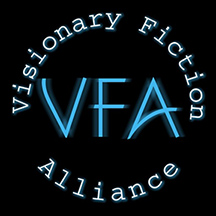I’ve seen a meme floating around on Facebook of a Euler diagram linking together a host of dystopian movies and novels to an ominous undisclosed location. It started popping up during the start of the pandemic. Comments about the meme varied, yet I got the sense that those who responded were bound together by a hidden force nestled within the subconscious realm. What were people collectively tapping into? In a critique on Orwell’s writing style, Sam Jordison reveals something about “1984” that will resonate with visionary fiction fans: “You only have to look at the way it [1984] has altered our language and raised our collective consciousness of the dangers of the surveillance state.” Aside from Orwell’s “preposterous melodramatic incidents,” the horrors of “1984,” evoke us to glimpse beyond society’s veil. This subconscious unveiling may explain why the dystopian meme went viral. Can dystopian stories that raise our collective consciousness be considered visionary fiction?
In “Modern Man in Search of a Soul,” Carl Jung viewed visionary fiction as an inverse of “psychological creations.” A visionary story is “a strange something that derives its existence from the hinterland of man’s mind—that suggests the abyss of time separating us from pre-human ages, or evokes a super-human world of contrasting light and darkness. It is a primordial experience, which surpasses man’s understanding and to which he is therefore in danger of succumbing.” To unwrap this definition, we’ll first explore our current society and the possible elements that might be prompting people to make the dystopian connection.
Read the rest of the article at the Visionary Fiction Alliance.




